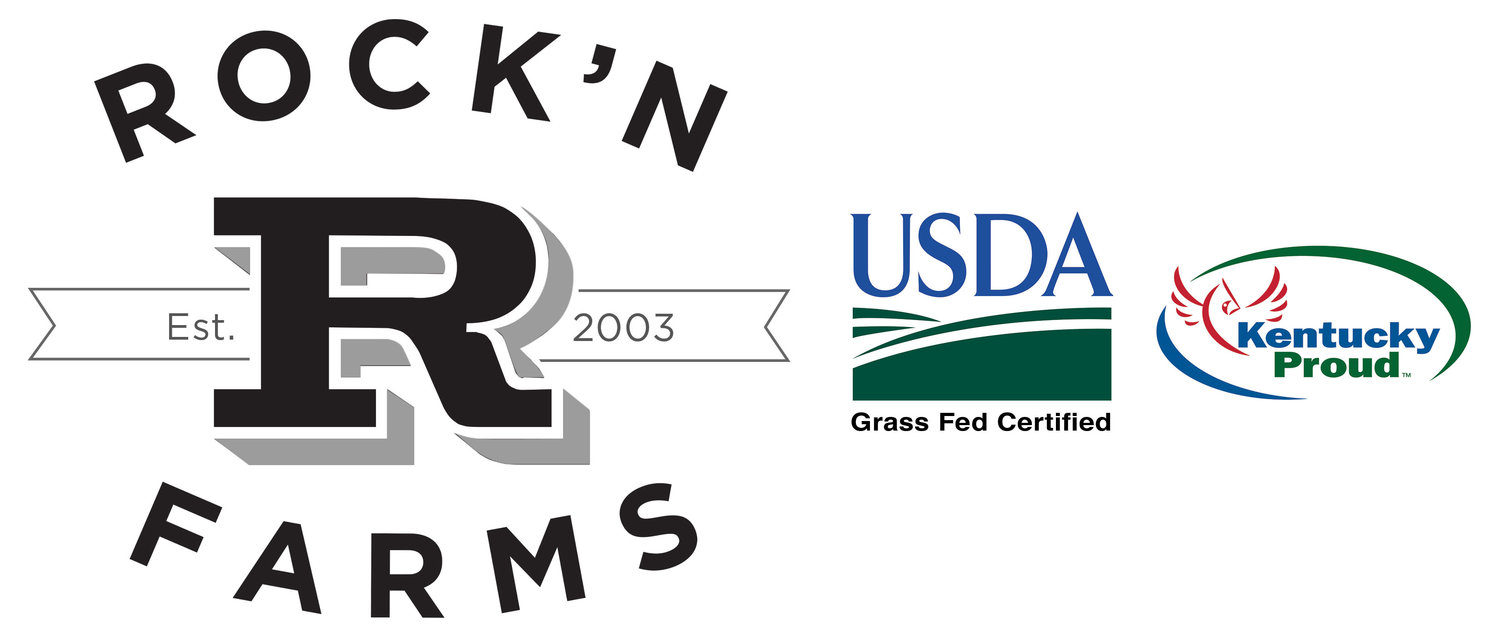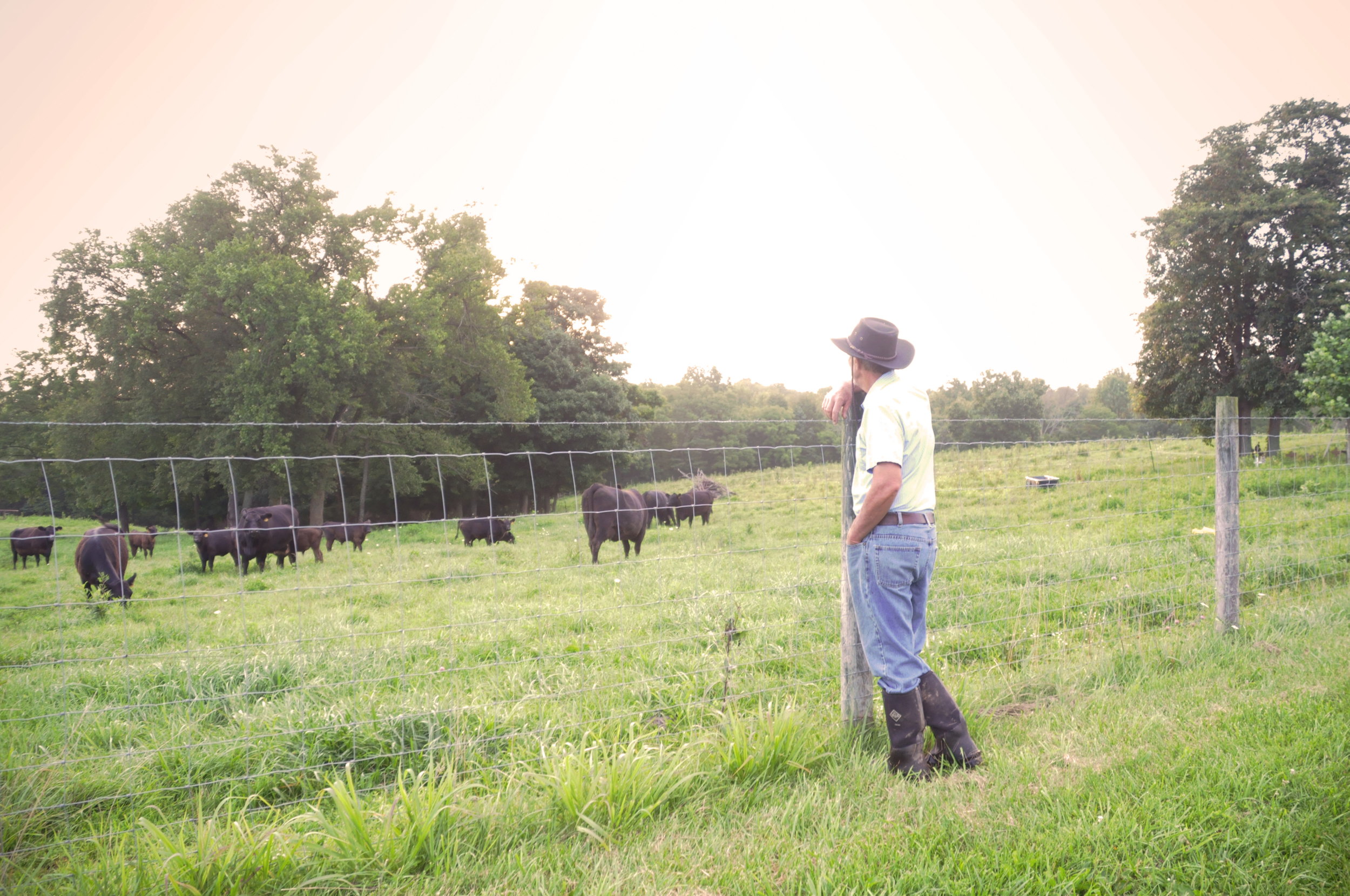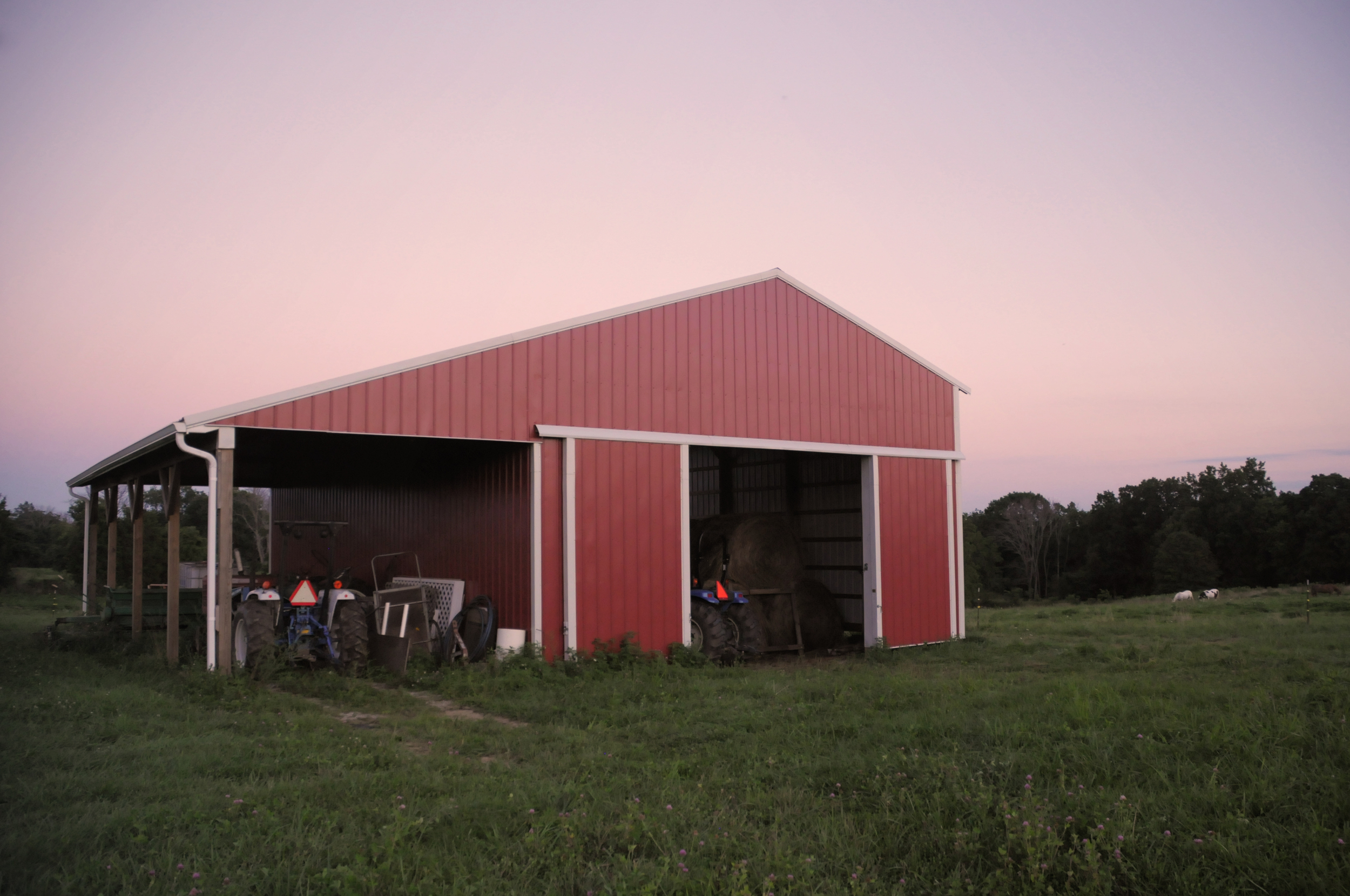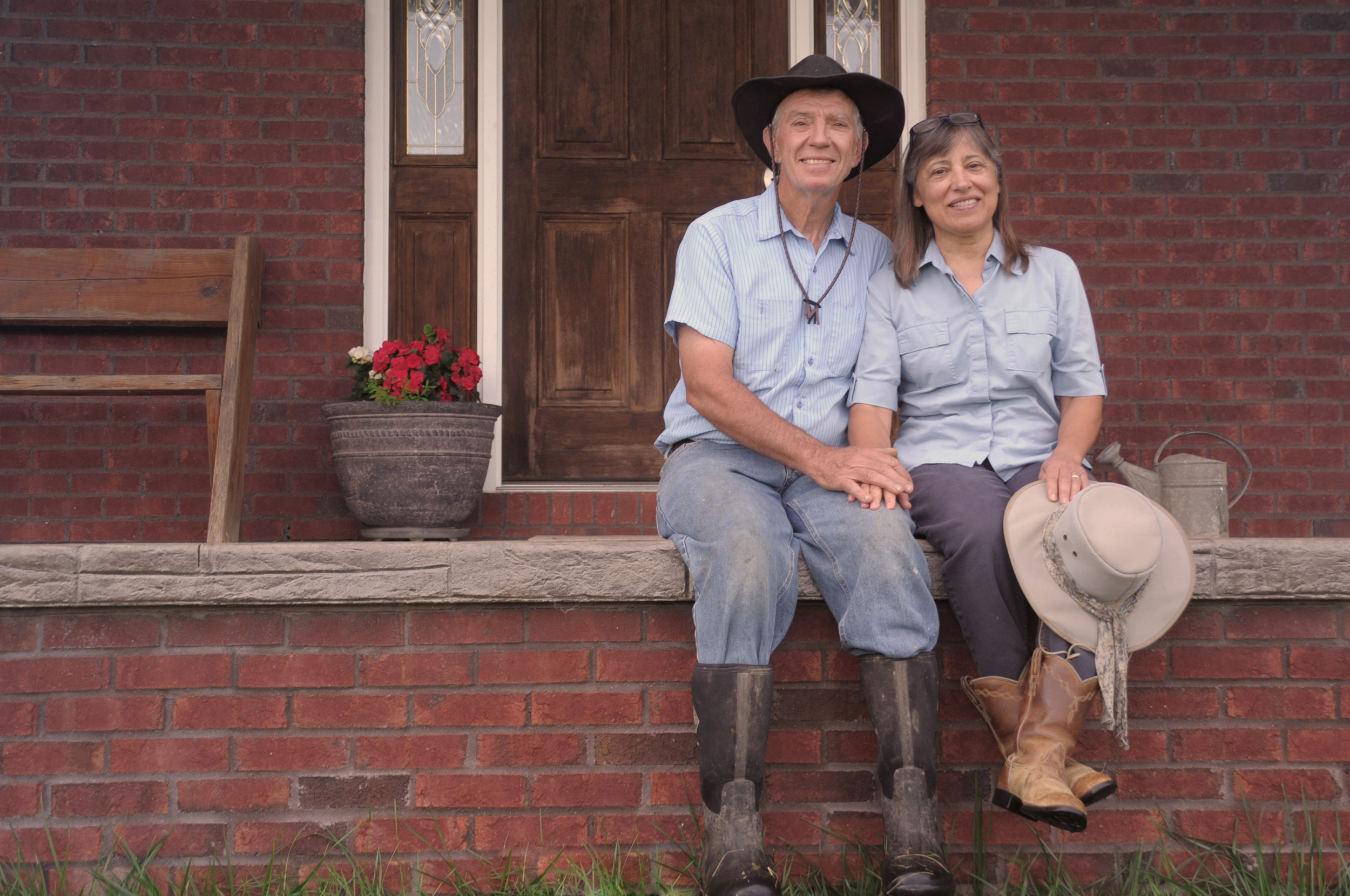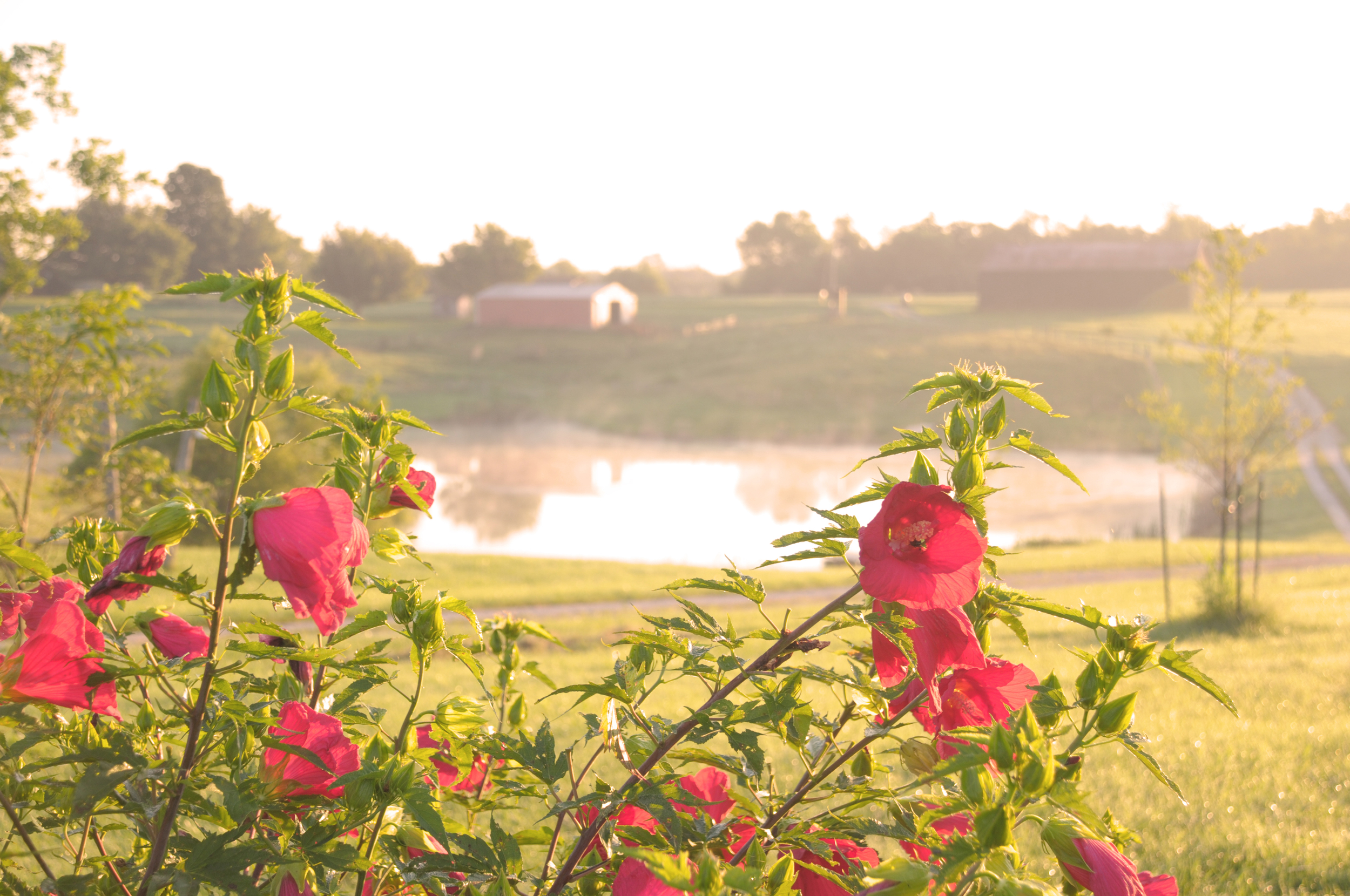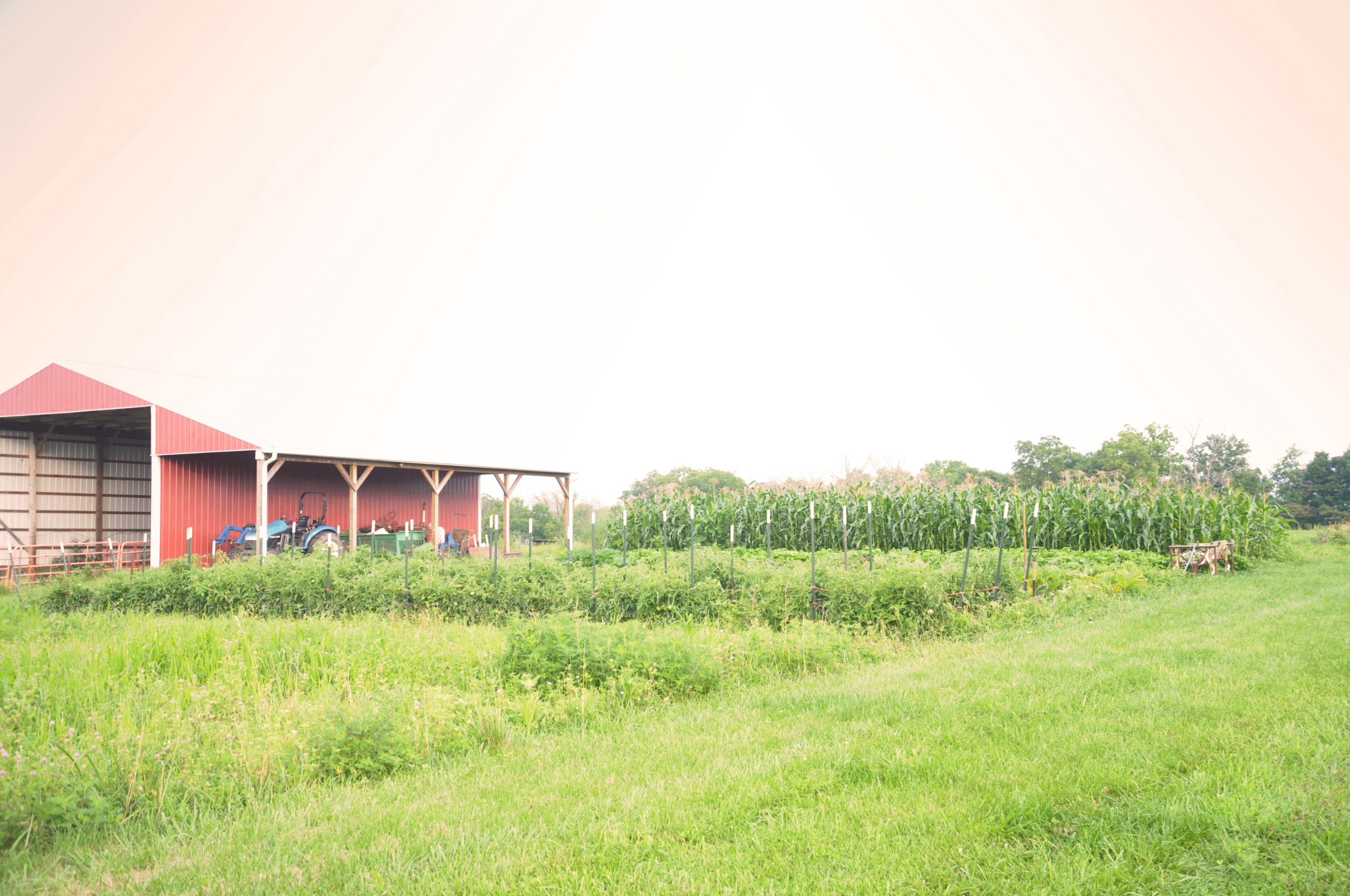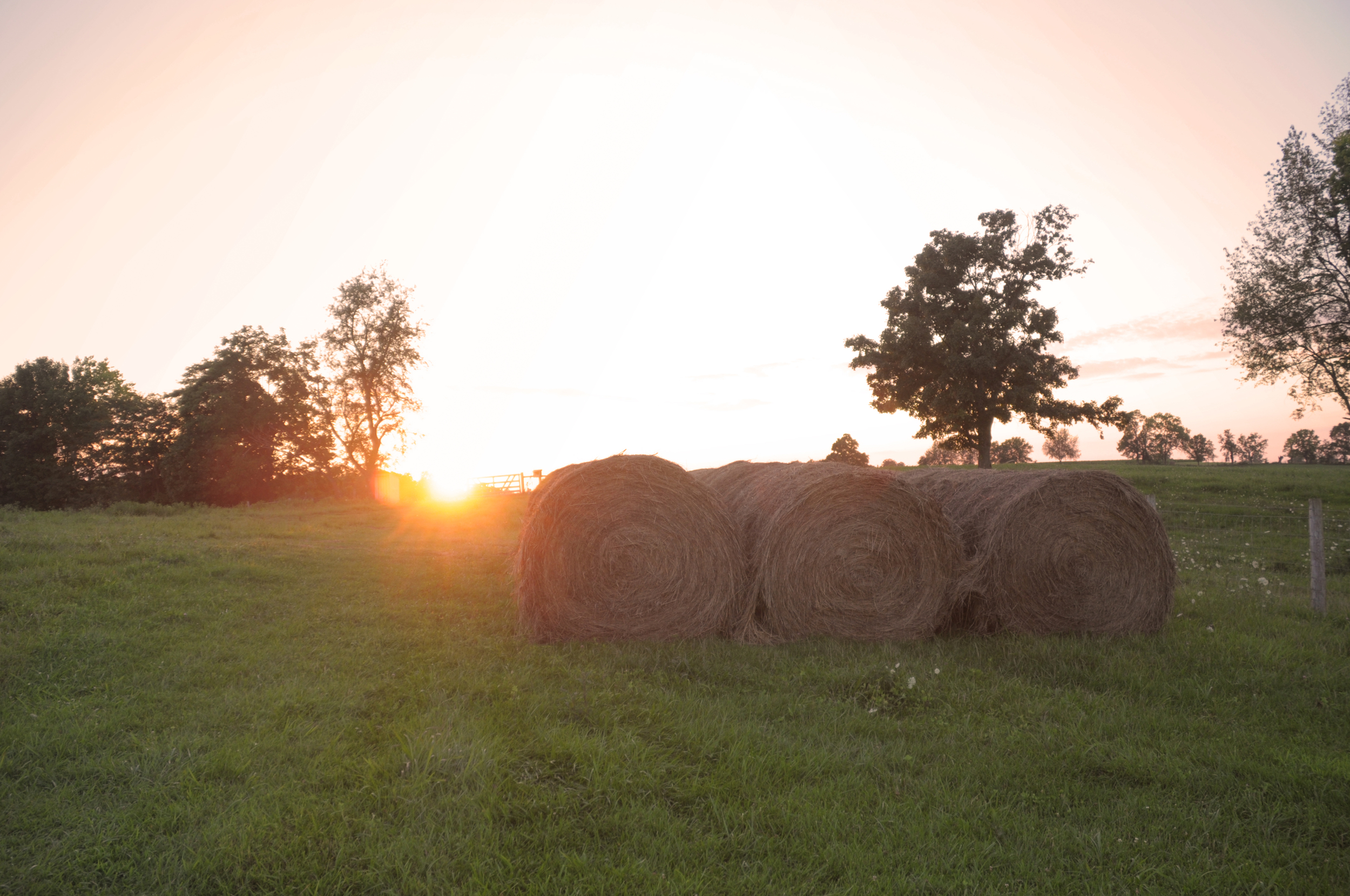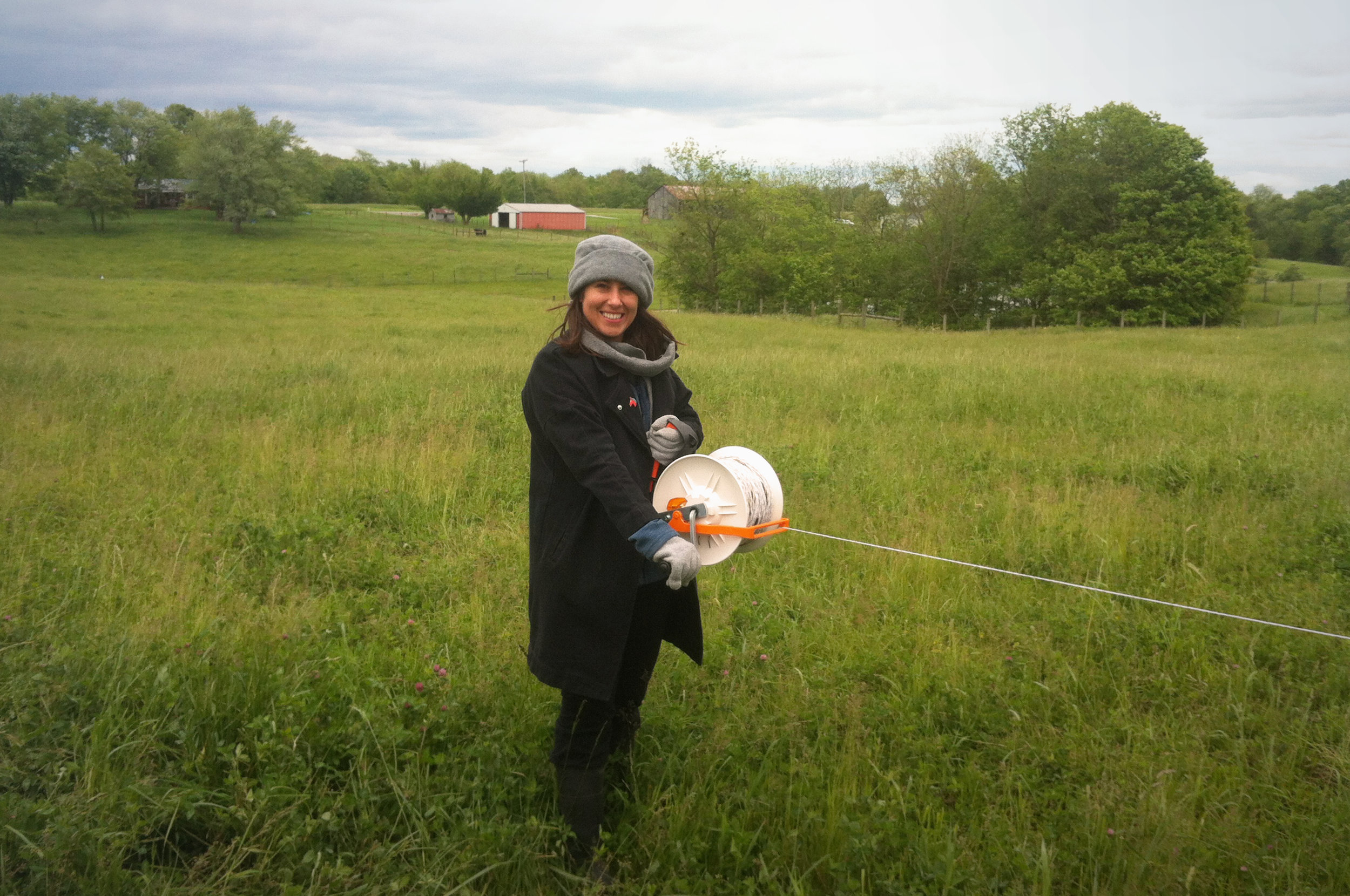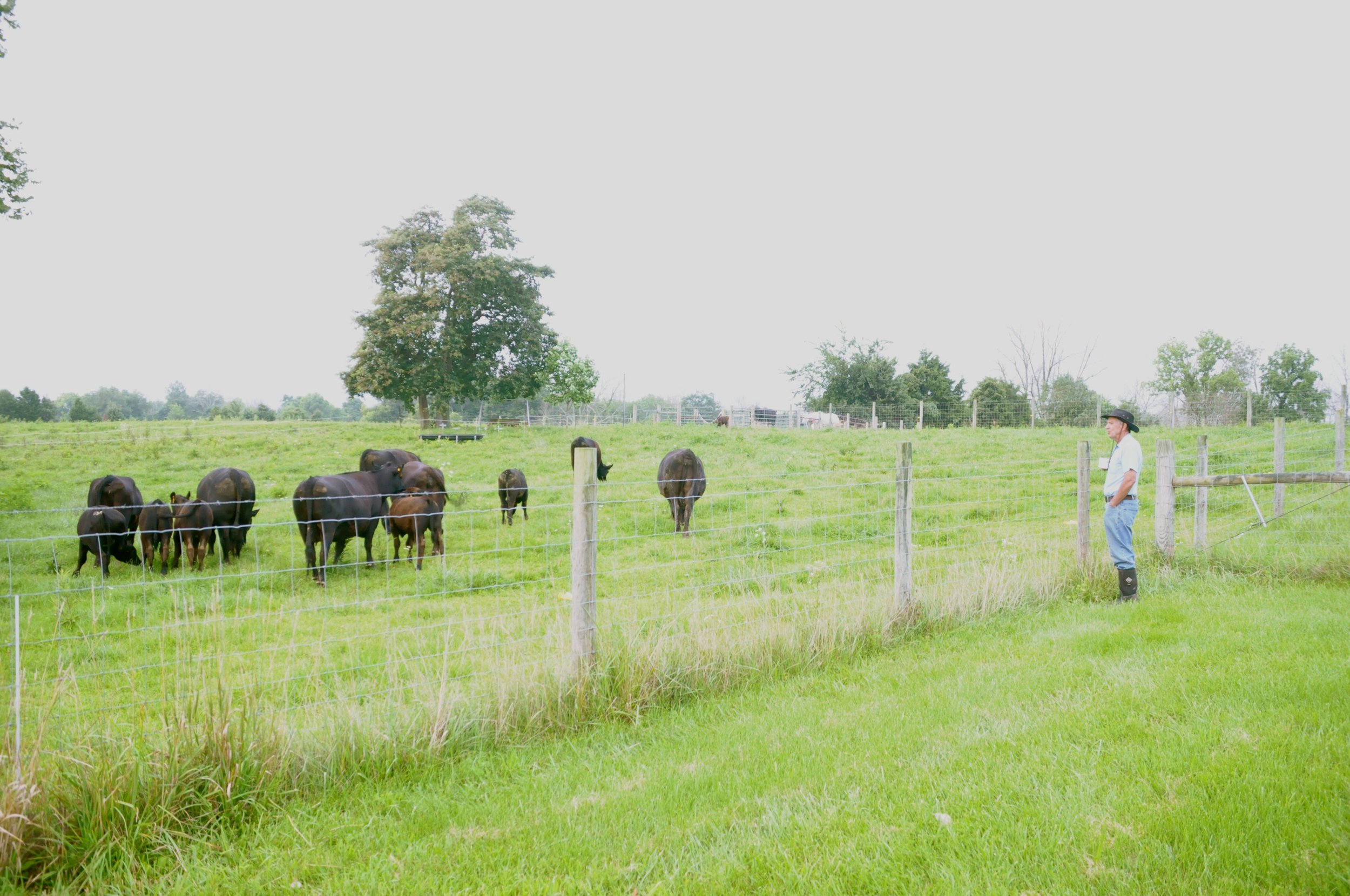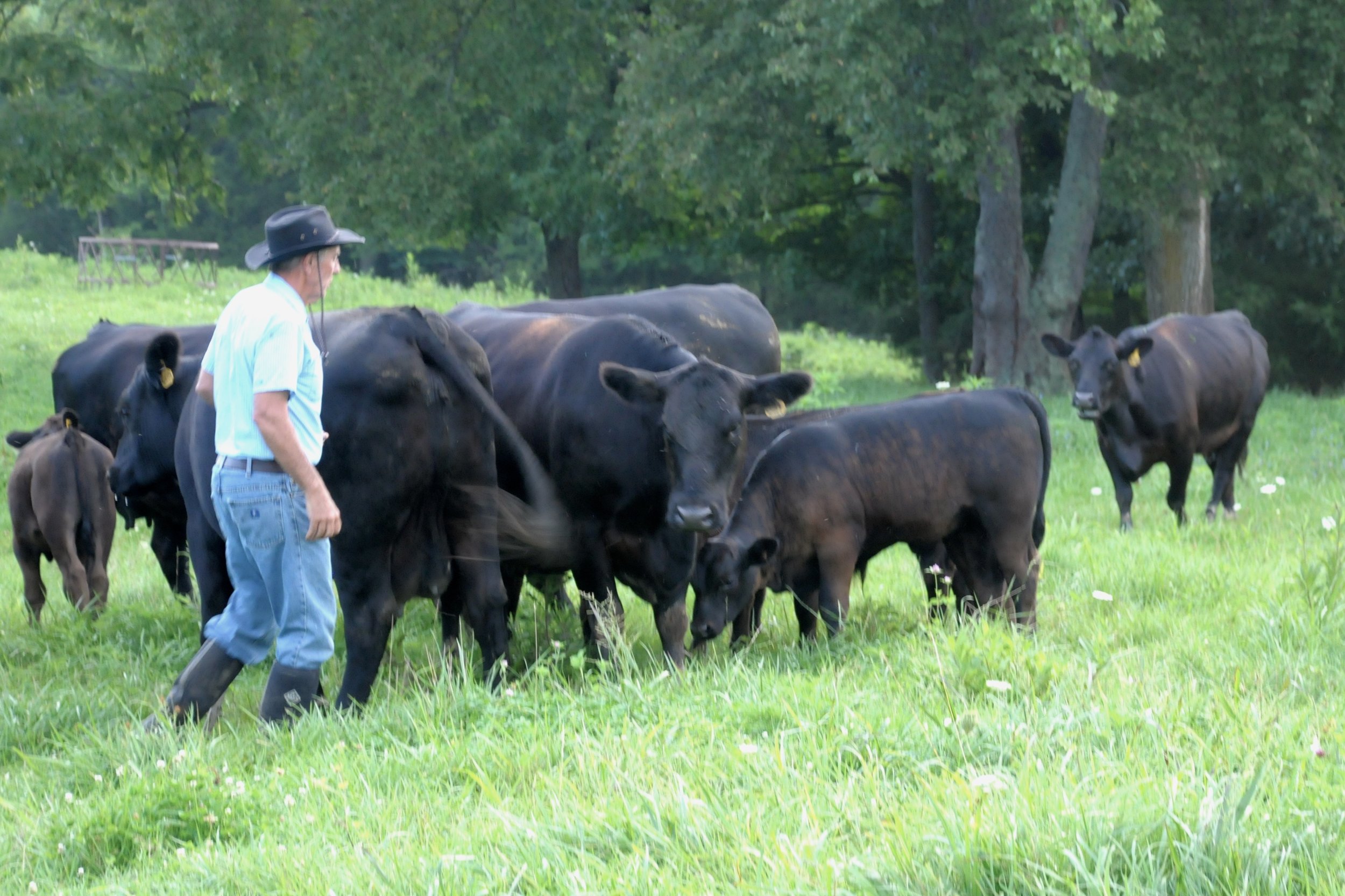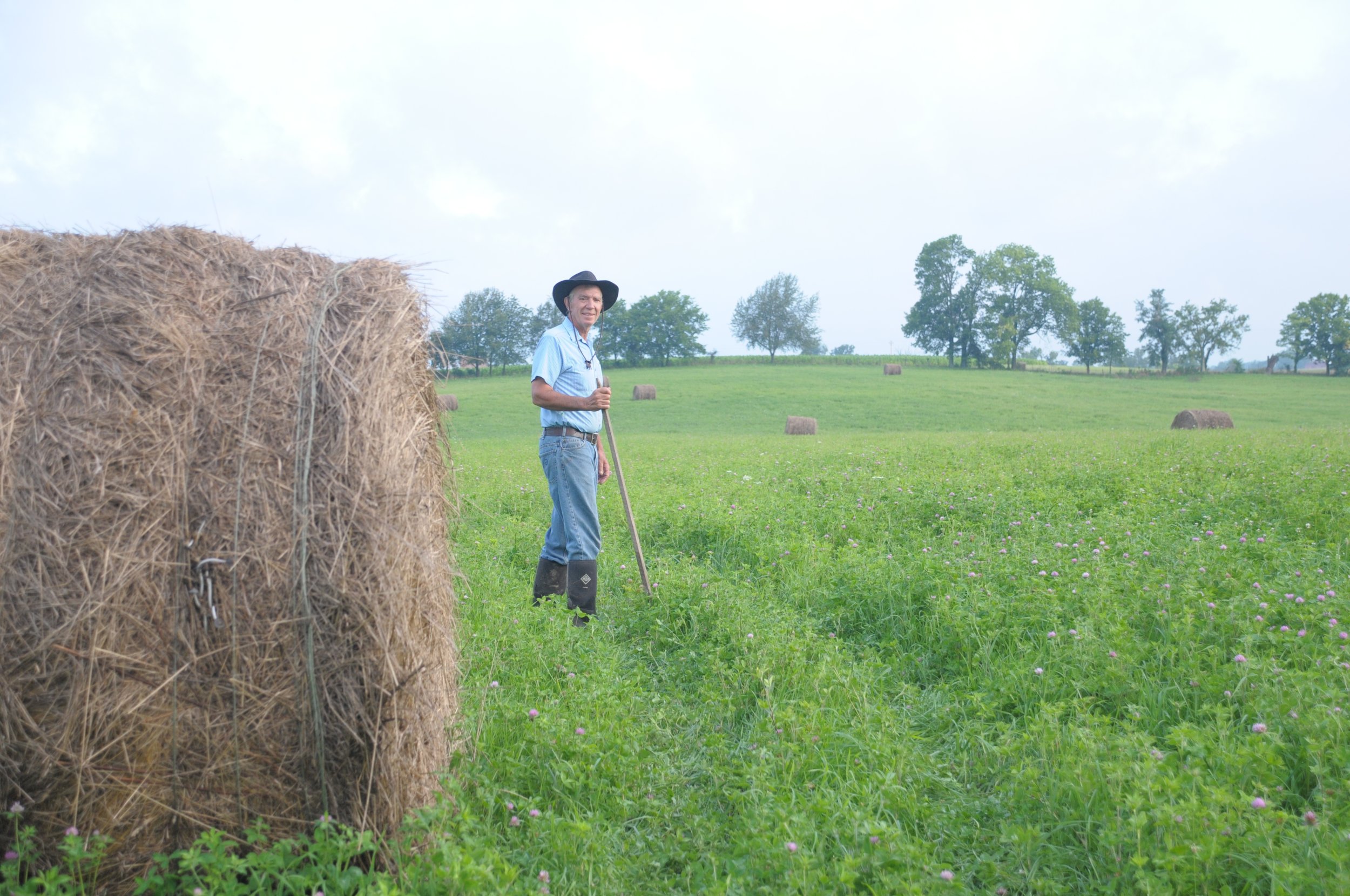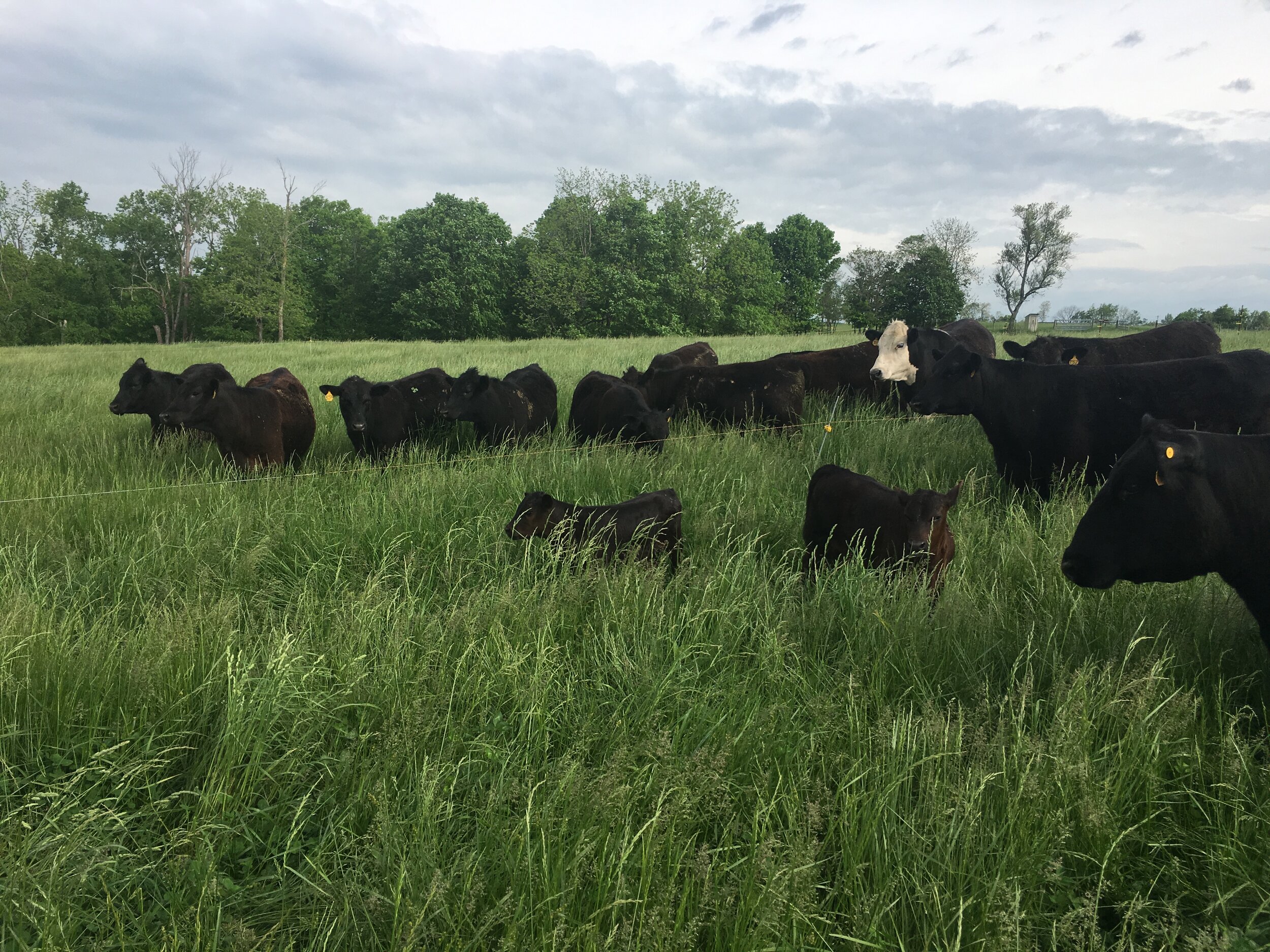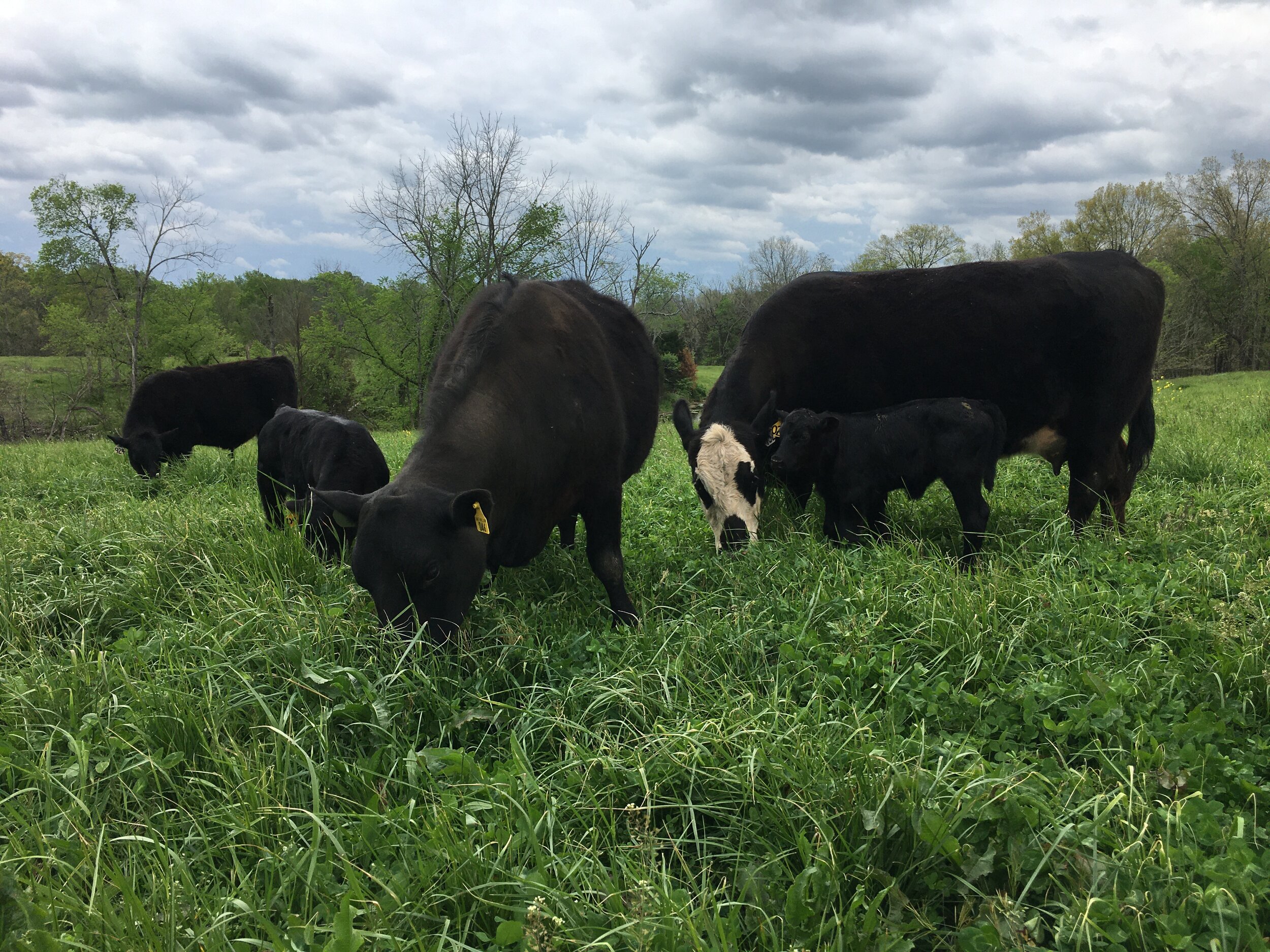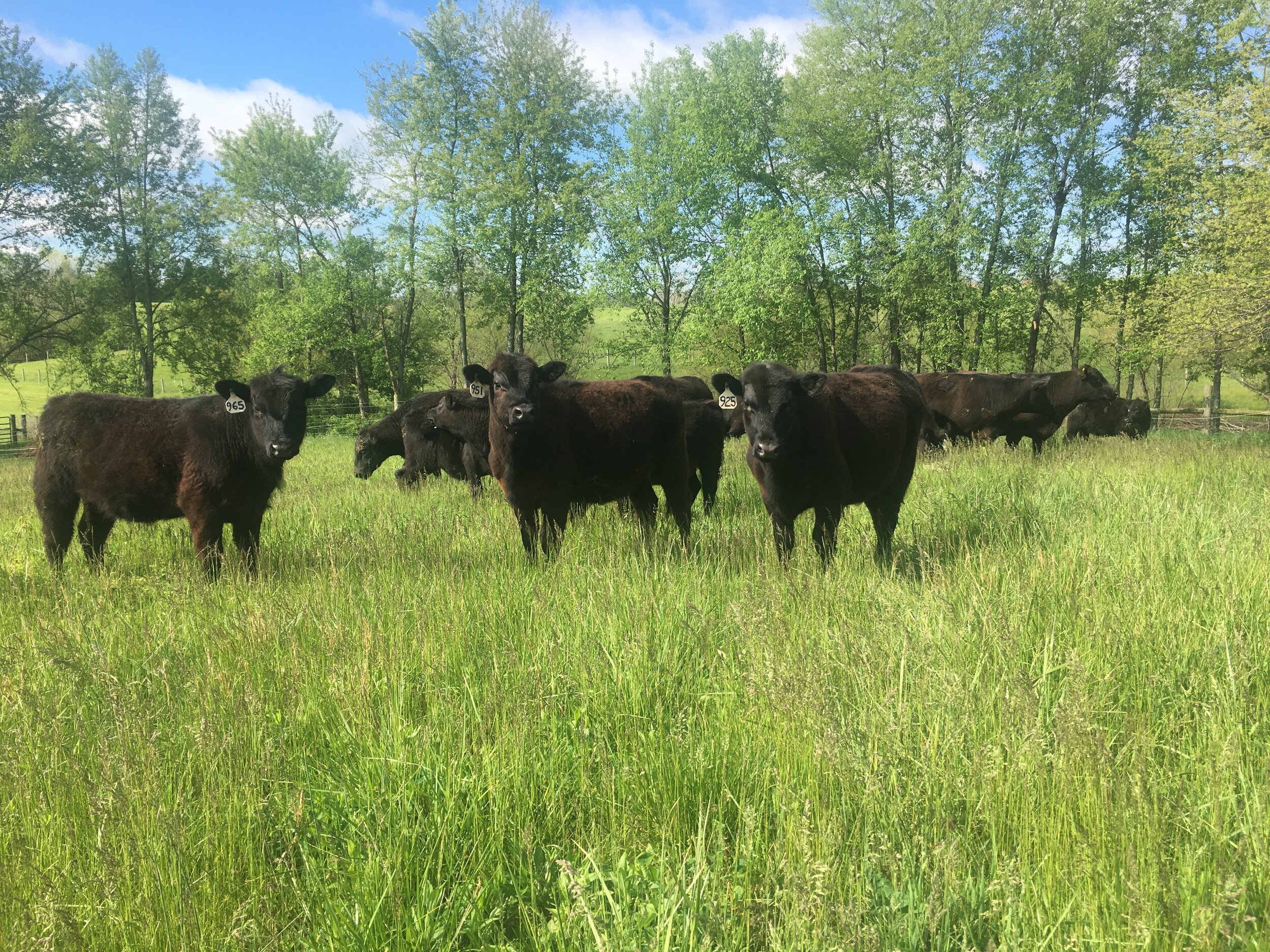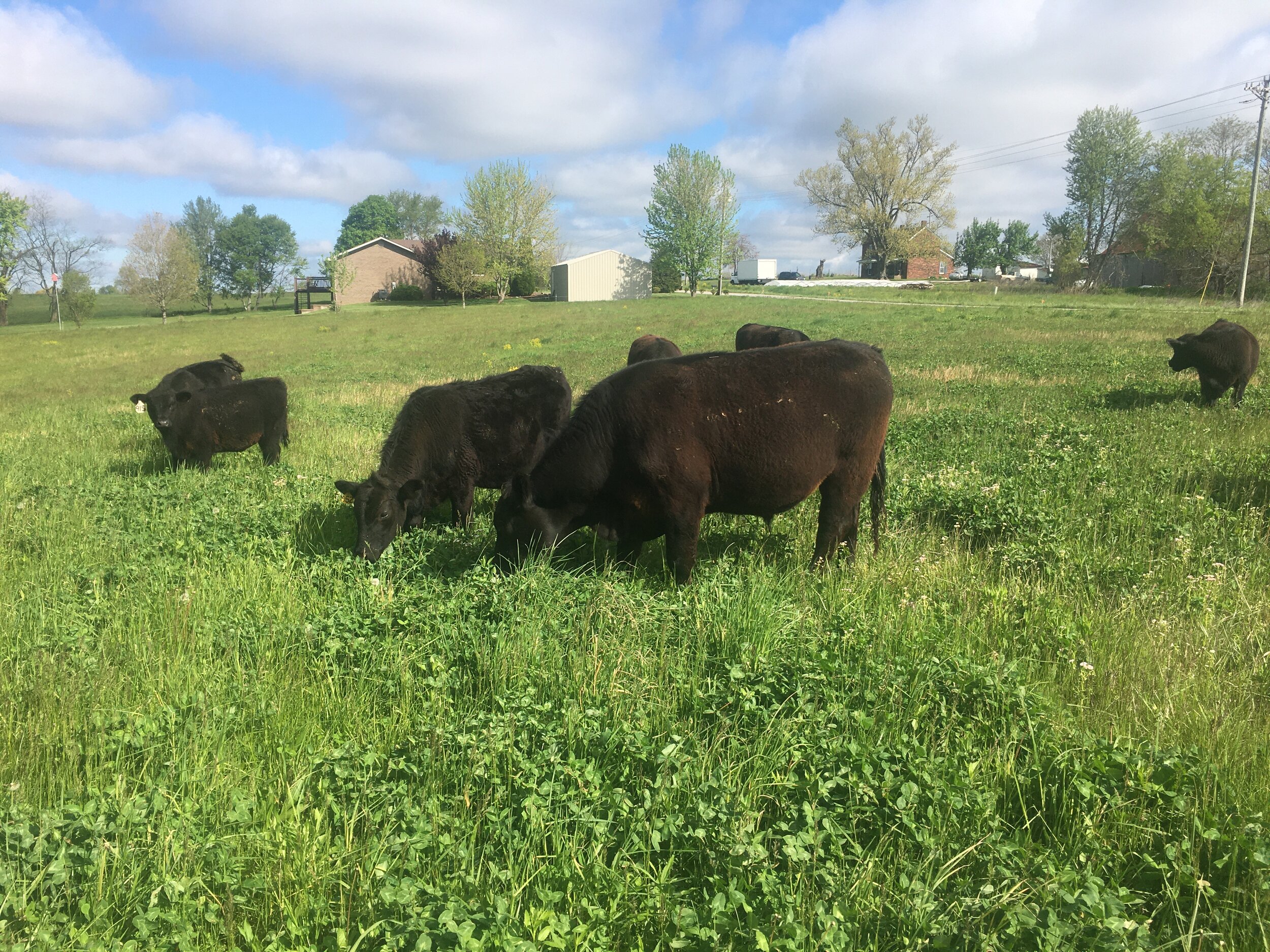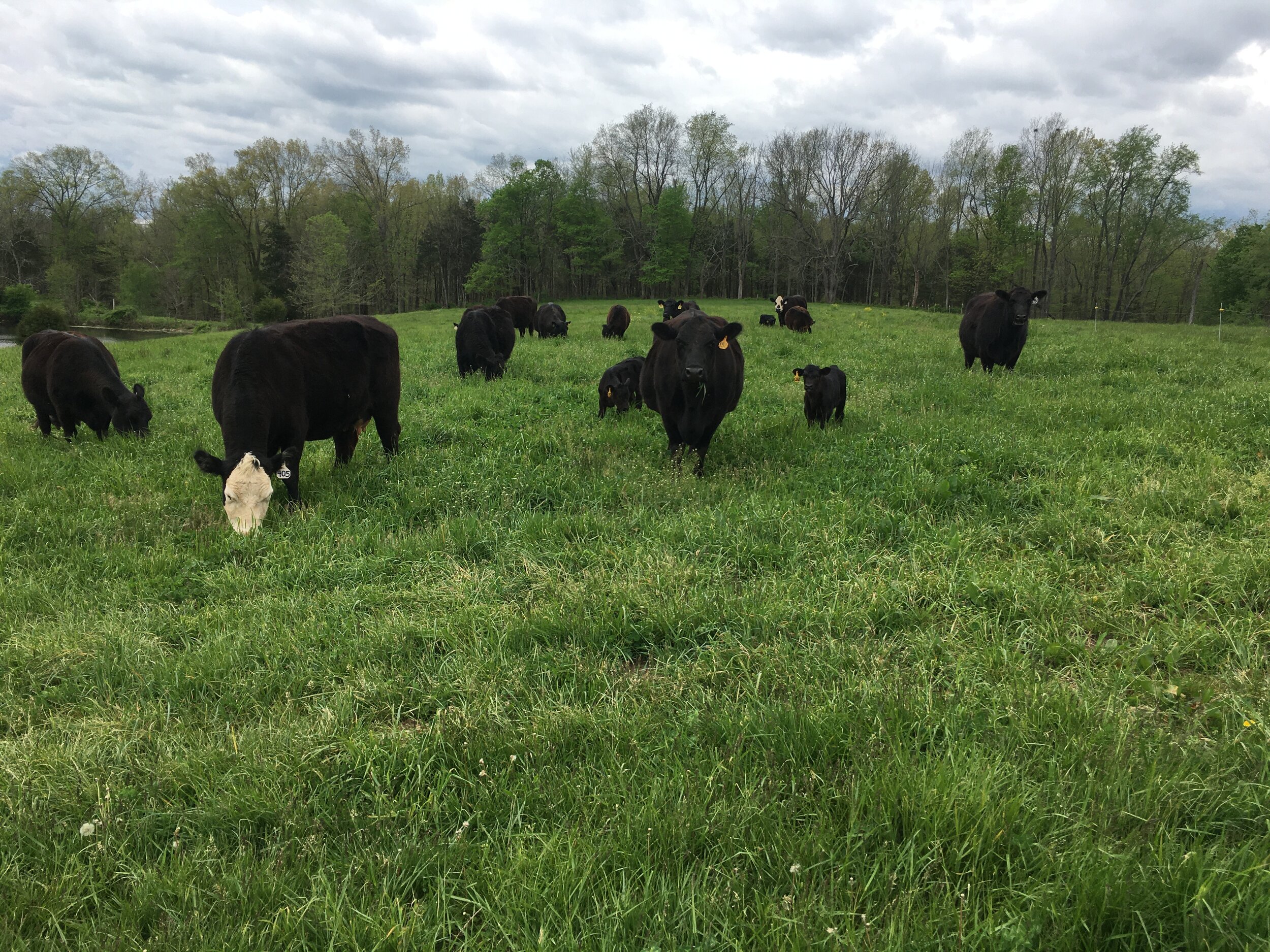WHAT WE BELIEVE IN
We raise our cattle on open pastures as nature intended. Cattle were not designed to eat grain. To accomplish this we only use organic certified inputs to build richer soil, stimulate humus production, promote biological activity and supply trace mineral elements. All components that promote healthy animals, and beef that is healthy for you.
OUR FARM
Rock'n R Farms was established in 2003 when we decided to move out of the city to a larger farm. We had the dream of growing our own food and living off the land just as nature had intended. We purchased a 113 acre farm in Henry County, Kentucky. Rock’n R Farms is comprised of approximately 70 acres of lush pasture surrounded by a nice balance of woods. The acreage use to be an active dairy farm back in the 60s and 70s. We found that the soil had been pretty well depleted and needed a lot of input to bring it back. We've spent years regenerating the health of the soil and building fencing and infrastructure for our grass fed herd. In 2005 we built a home and moved the whole family permanently.
Everything we do on Rock’n R Farms keeps one goal in mind:
To produce a healthy and sustainable product.
OUR METHODS
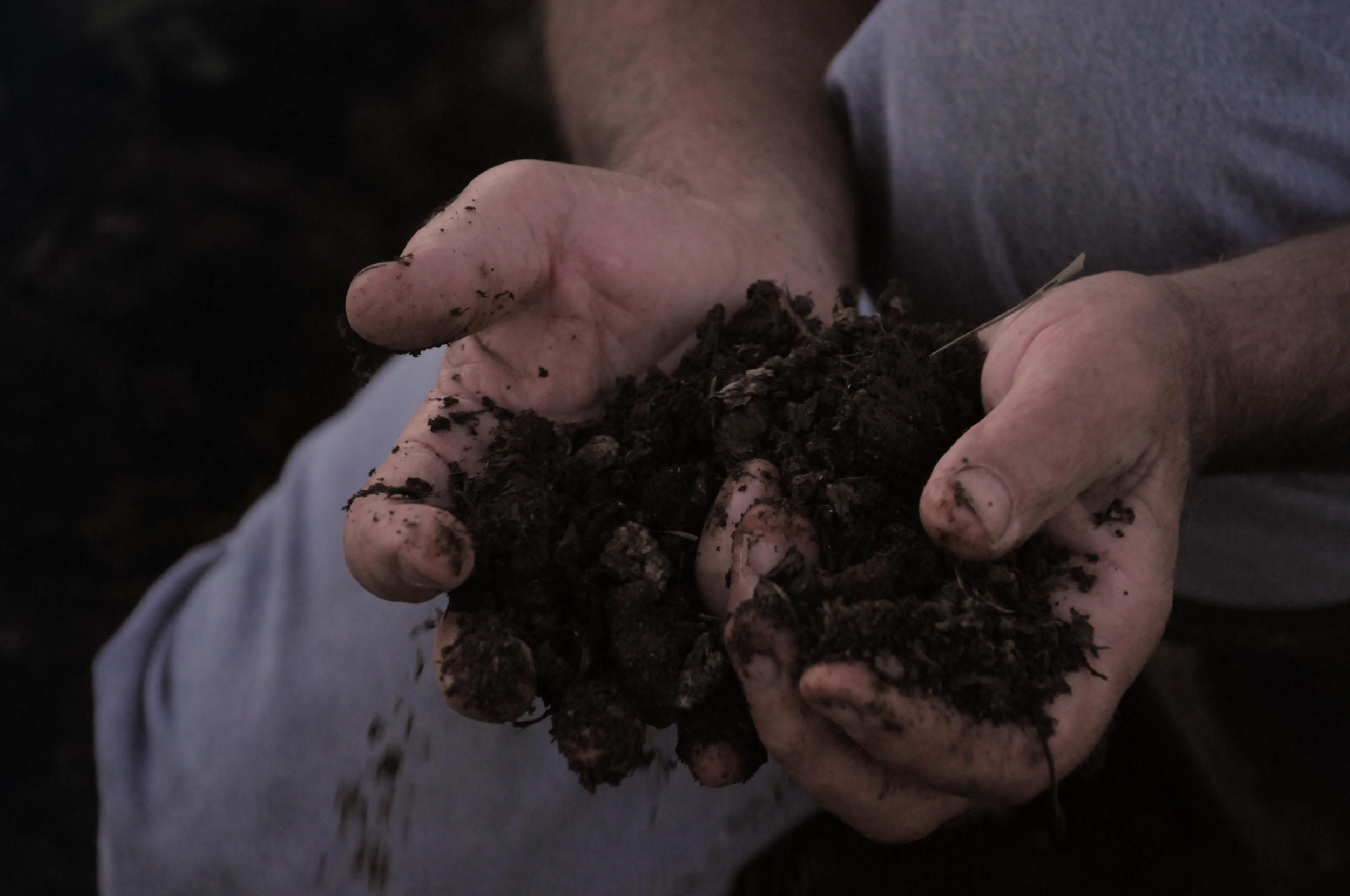
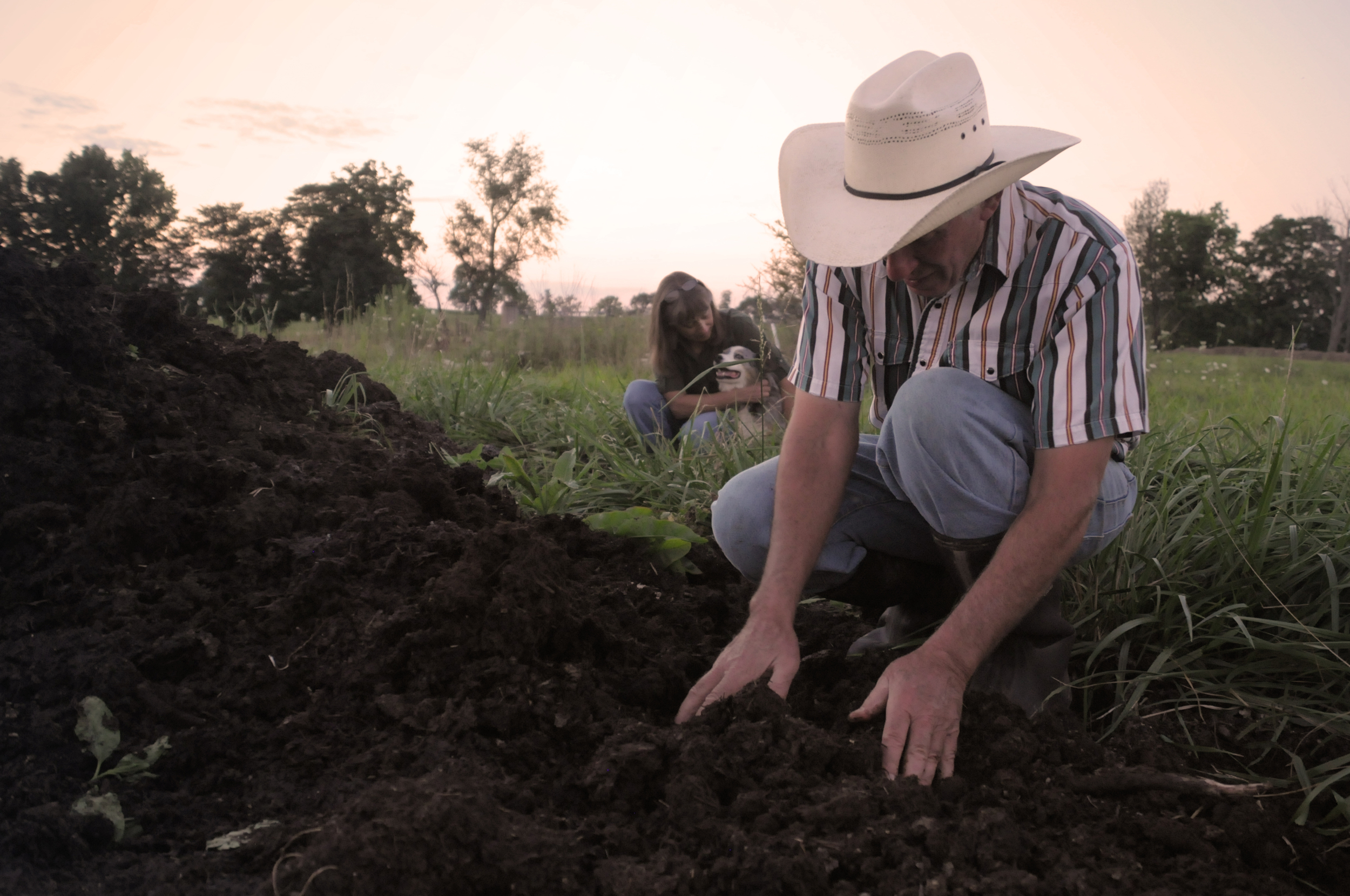
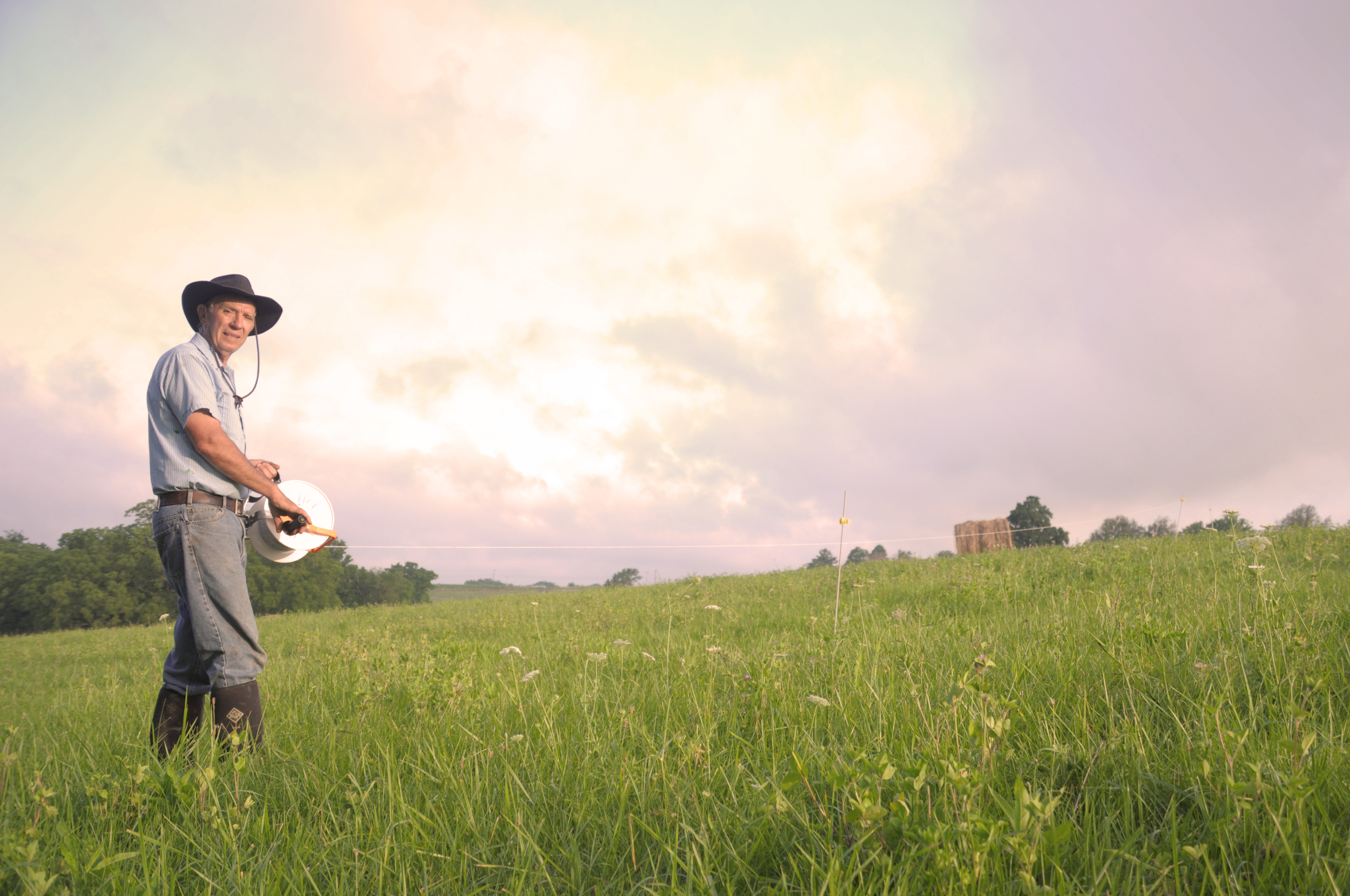
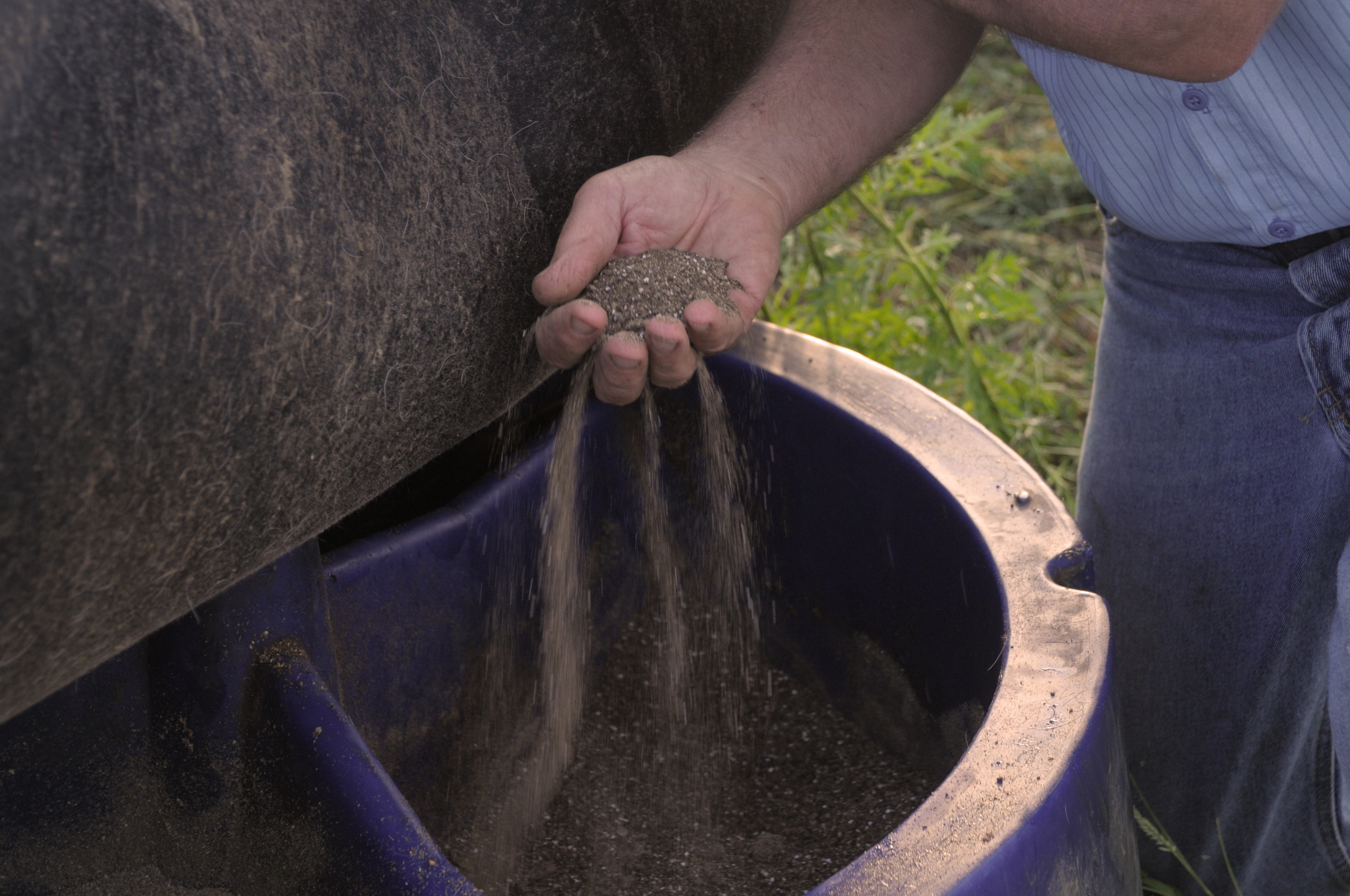
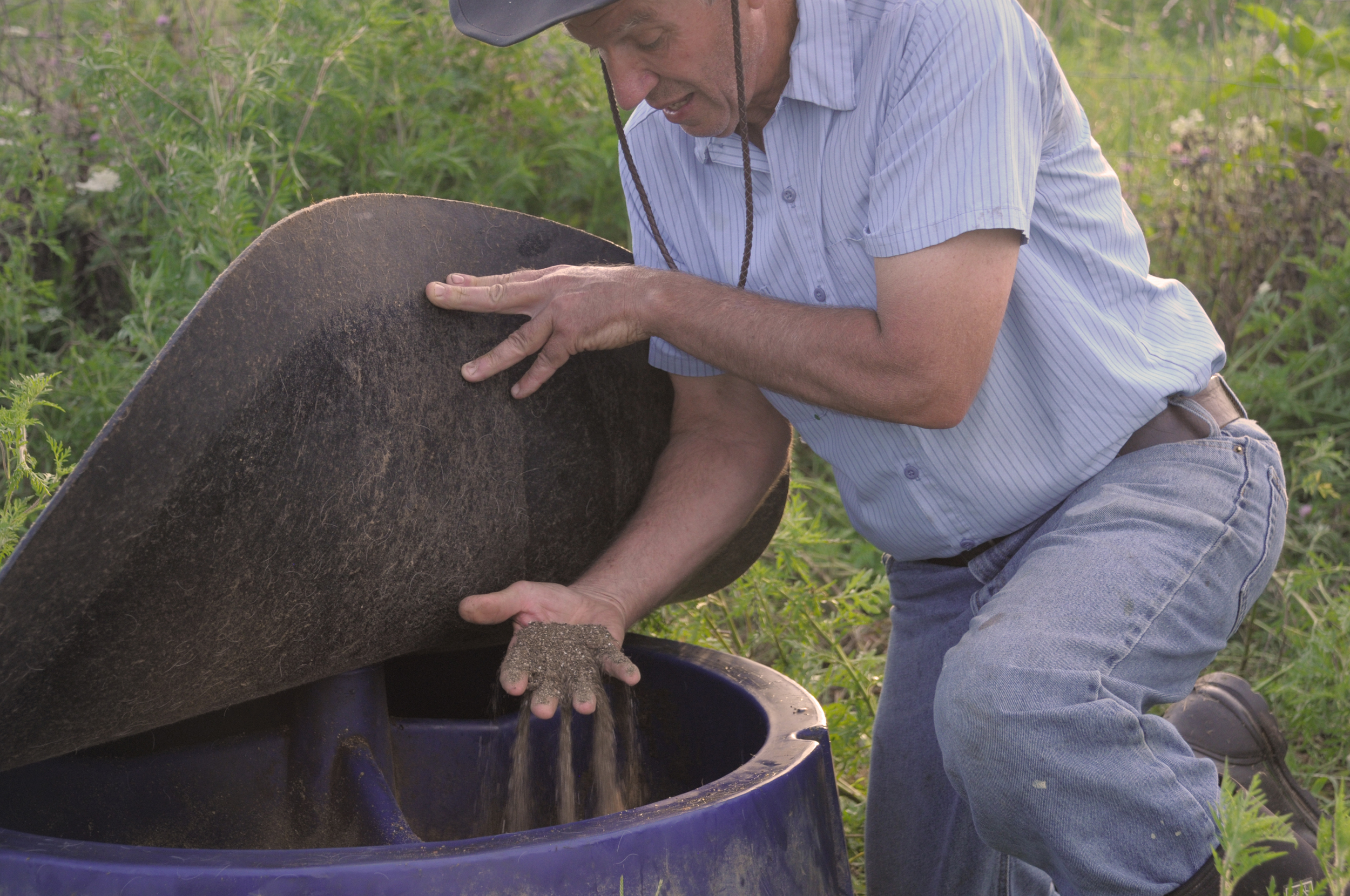
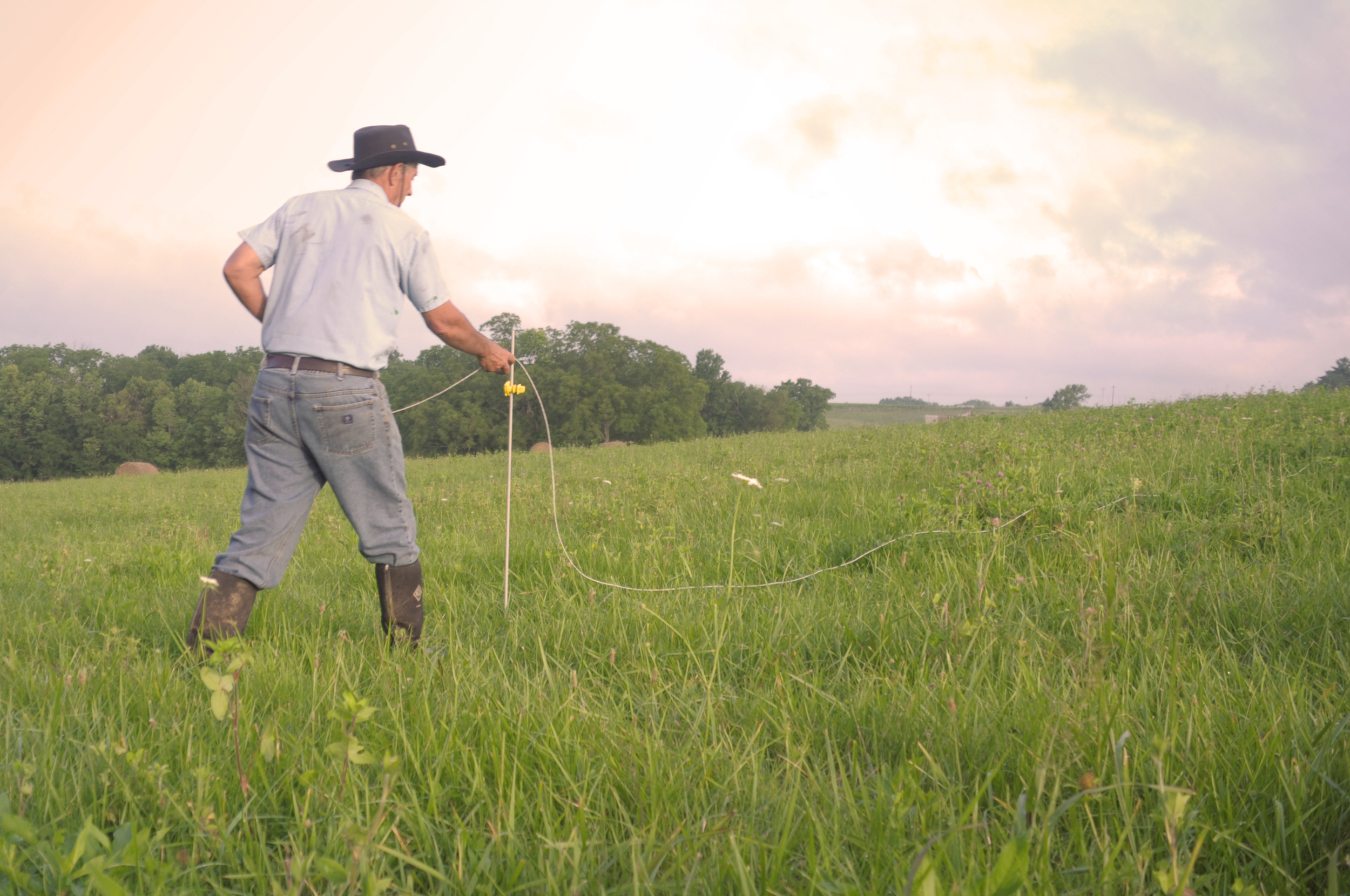
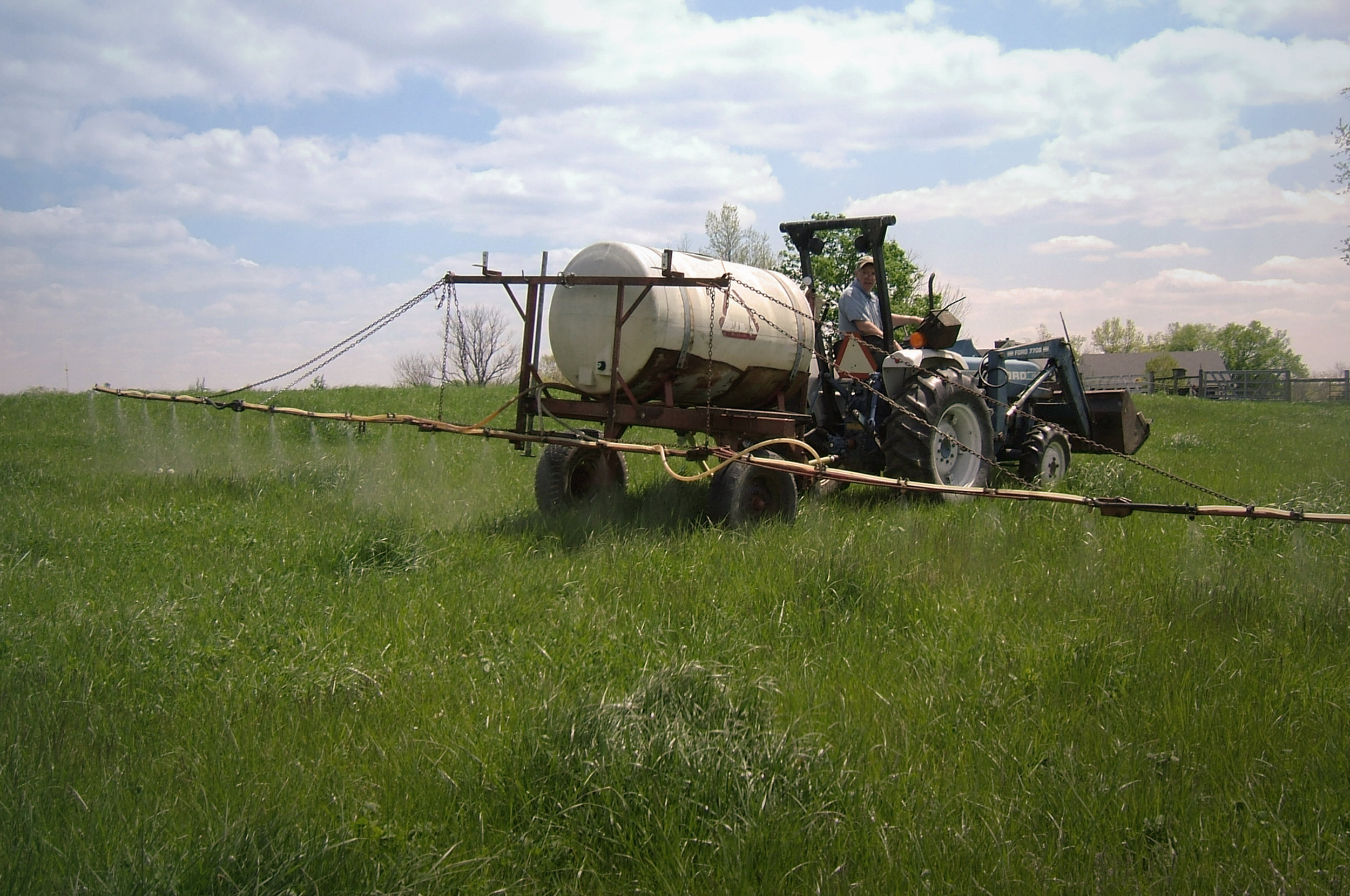
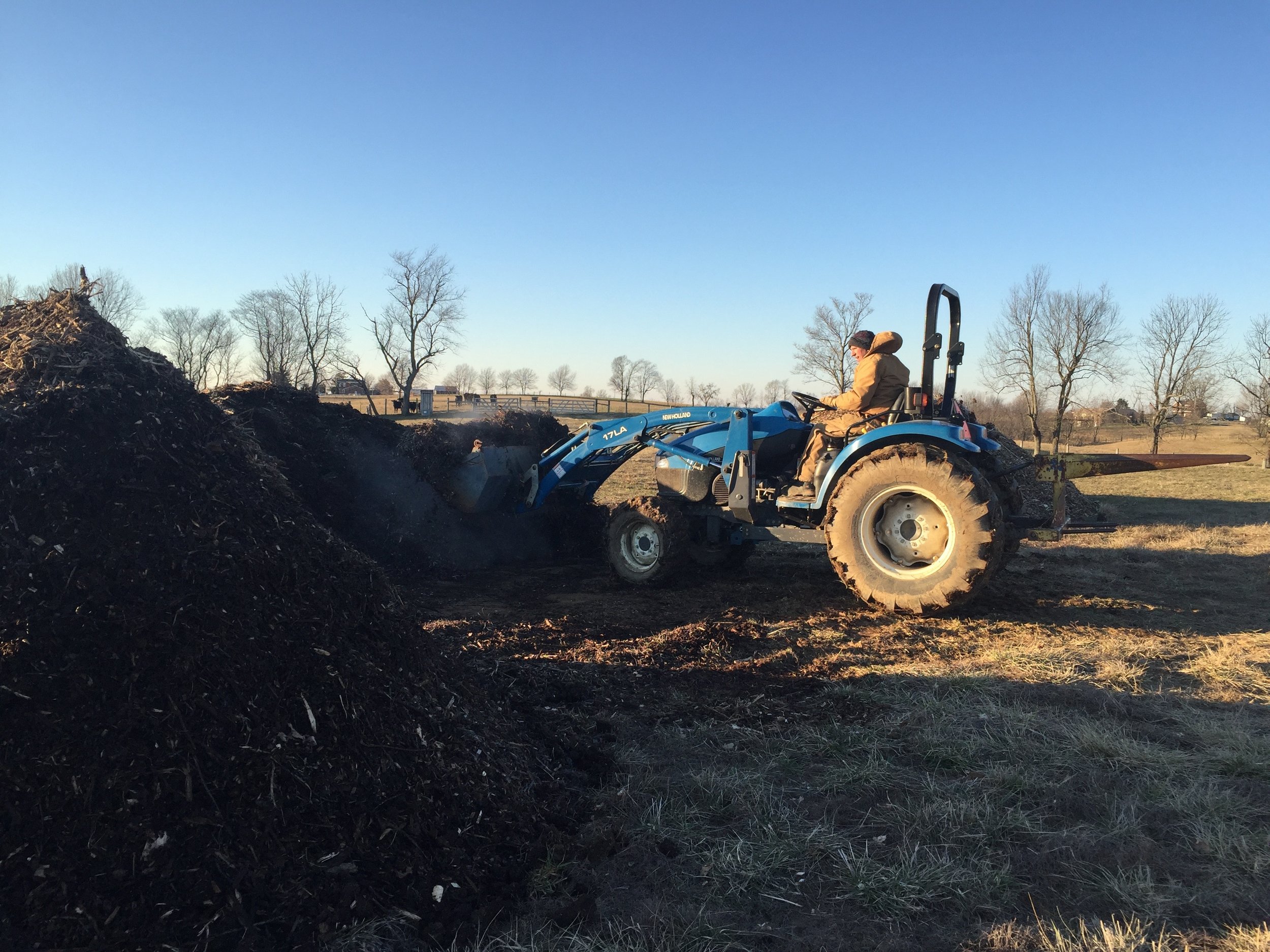
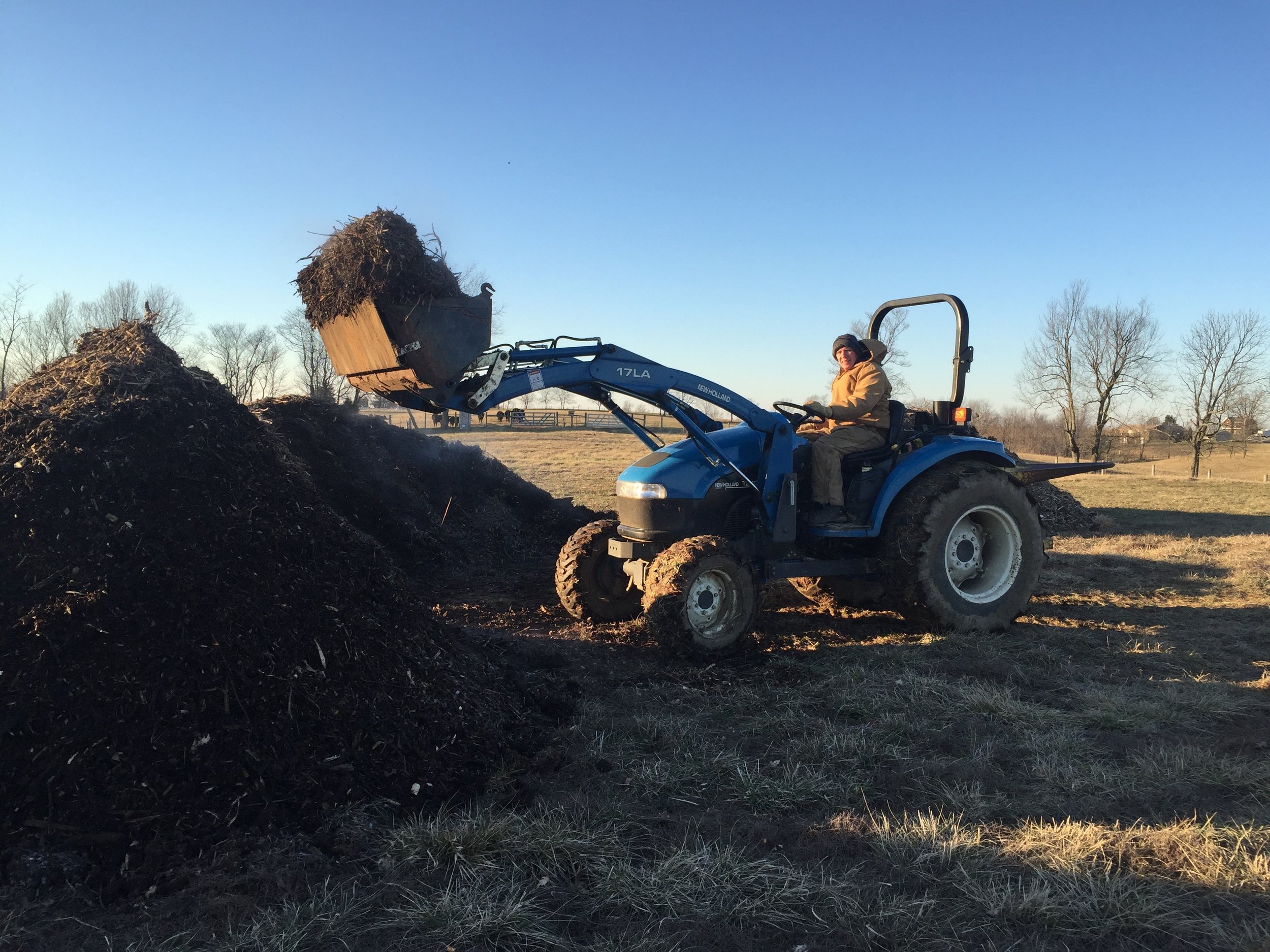
ROTATIONAL GRAZING: This is a practice of moving grazing livestock between pastures on a 1-2 daily basis. Our herd grazes on one portion of the pasture at a time, while allowing the other areas to recover. This gives the land the love it deserves. It improves soil fertility, plus makes for happy, stress-free cows.
BLUE N 5-1-1: This Fertile soil conditioner is a well balance plant food. It builds richer soil, stimulates humus production, promotes biological activity and supplies trace elements.
NORTH ATLANTIC SEA KELP: Given to our cows, sea kelp is a naturally balanced and chelated source of trace minerals containing a broad range of essential nutrients necessary for animal nutrition. Sea kelp works as a natural meat tenderizer as well as adding delicious flavor.
STATIC PILE COMPOSTING: Taking tree trimming chips and leaves, and mixing them with high nitrogen manure. Then composting it in piles, while turning it periodically for about six months. It is then spread on the pastures to feed the forage naturally. The microbes in the compost help build soil, humus and encourages more earthworms which all adds to healthy soil. With healthy soil you provide the healthy forage that produces the finest grass finished beef.
PEOPLE THAT INSPIRE US
"As a rule, land left to itself does not get better, it deteriorates. Man's job, our job, is to build it up and keep it vibrant and alive. ...The first principle is feed the soil and let the soil feed the plant." - Neal Kinsey acresusa.com
"One, if it's in their feed it's in our food. Two, if it's in our food, it's affecting our health. The new paradigm is we are what our animals eat." - Jo Robinson, Co-author of The Omega Diet
"You can definitely feel confident in promoting your grassfed products as a cancer preventer." - Dr. Tilak Dhiman, Utah State University
"A major problem with today's health care system is that they profit when people are unhealthy. Consequently, there has been very little emphasis on preventive medicine." - Allan Nation, Author of Grassfed to Finish
"The agriculture of the future, I believe, will have to include greater complexity still in the crops we plant and the animals we manage with them. It will also require the use of new technologies that, unlike those used in the past, are first tested toward a holistic goal for their ecological social, and economic soundness." - Allan Savory
"The more of the animal's life and genetics you control, the more consistently you can produce the kind of product you want." - Joel Salatin Polyfacefarms.com
"Most importantly we want to harvest the animals when they are the most comfortable and on the highest quality forage. That will insure the most succulent of beef." - Joel Salatin Polyfacefarms.com
"Mother Nature made a deal with the cow. She said, "I'll provide you plenty of grass, but you have to give something back. Every bite you take, you will leave the culture in the forage and in the soil." - Charles Walter & Gearld Fry
"It is beyond me why so many farmers insist on mechanically harvesting all the material just so they can haul it to the cows. The cows would gladly harvest that forage." - Joel Salatin Polyfacefarms.com
